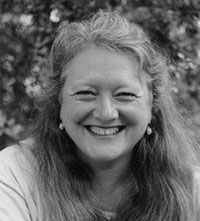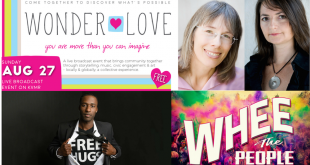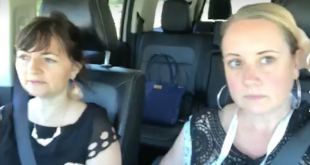What do you love most about the work you are doing?
Writing poems is my public work, but it’s also a big spiritual connection: it nourishes, sustains, and helps me make sense of the world. I love how integrated my life is: how much the spiritual link from writing the poems supports everything I do.
In order to speak out effectively in the political arenas I focus on — social equality and the worldwide cessation of child abuse — having a spiritual life and strong community ties are crucial.
The status quo in these arenas is well-defended by the culture and making any headway requires long-term commitment and stamina, things I find it hard to muster without help.
I love all the ways I’m connected to the people in my community to get that help: as teacher, student, neighbor, friend, mentor, elder, disciple, sister, and gadfly.
What were the motivating factors that inspired you to get involved and share your passion?
I was abused in childhood, and silenced. It’s organic and natural to want to speak out once you’ve been able to break that silence. I want to model what it looks like when a person tells the truth about herself and her life. That’s what I teach: how to become your essential, authentic self. A big part of teaching it is doing it.
Who were some female role models or mentors that inspired your work and passion?
The contemporary women poets who have also written about abuse: Mary Oliver, Linda McCarriston, Dorianne Laux, Marie Howe. The political poets: Carolyn Forché, Grace Paley, Muriel Rukeyser. And both my grandmothers, who weren’t poets but were educated women in a time when women’s roles were mostly curtailed to the domestic. They showed me the importance of using our minds and hearts to make life better for everyone.
Why is the work you are doing so important for everyday women?
Two reasons:
First, I think movements toward change are almost always grassroots movements: made possible by ordinary people who’ve had enough. “Everyday women” are the ones who will change the world, one household, one neighborhood, one county, one country at a time. Through the work they do, and for those who have children, through the way they raise their children.
Second, in encouraging women to become their essential selves, I think I’m helping to foster a deep and effective method for change, as well as to open up peoples’ options. We all seem to need permission from each other, and that’s one of the things I think every speaker at this conference is providing: permission to be yourself, permission to take a stand for something.
Why is it so important for women to participate in an event like the Passion into Action Conference?
I have mixed feelings about this question, because I know many women who can’t afford to attend conferences like this. So what I’ll say is that it’s important for women to gather together, however they do it, and look at what’s possible. Getting new ideas from each other, finding out nuts and bolts information, pooling our knowledge, seeing what motivates and inspires someone else — these provide wonderful support for taking action in our individual lives.
I hope the See Jane Do organizers will be able to record some of the presentations and provide opportunities (community access TV, library rentals, etc.) for people who can’t afford the tuition to benefit from the conference after the fact.
What are you hoping will be the biggest take-away for women at the Passion into Action Conference?
I hope women will leave at the end of the day with their heads full of new ideas, the sense that anything’s possible and they have the power to do whatever they want to.
What is your message to women around the world?
No matter what your circumstances, you are not helpless and you are not alone.
 See Jane Do Everyday Women Doing Extraordinary Things
See Jane Do Everyday Women Doing Extraordinary Things






